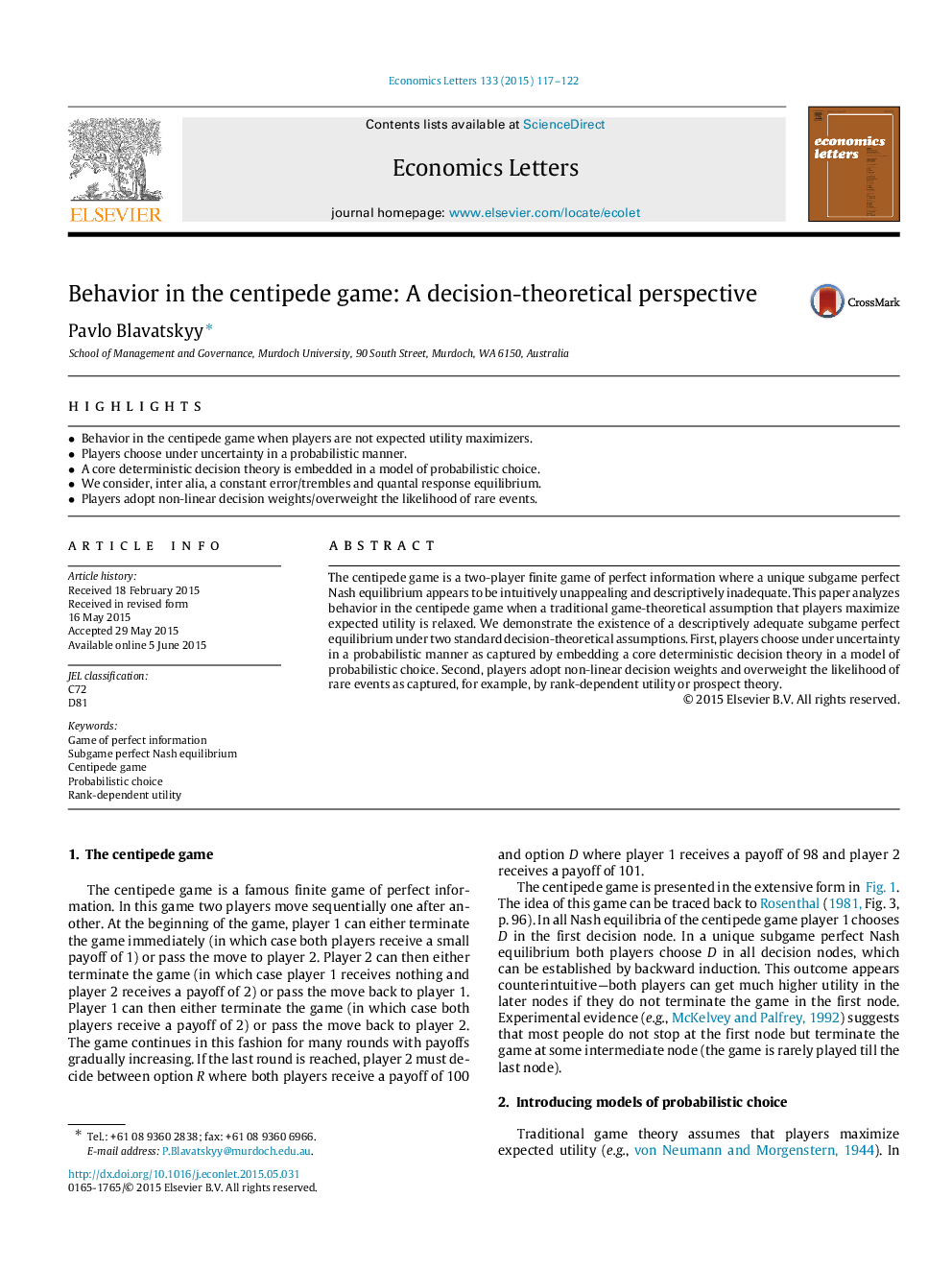| Article ID | Journal | Published Year | Pages | File Type |
|---|---|---|---|---|
| 5058635 | Economics Letters | 2015 | 6 Pages |
â¢Behavior in the centipede game when players are not expected utility maximizers.â¢Players choose under uncertainty in a probabilistic manner.â¢A core deterministic decision theory is embedded in a model of probabilistic choice.â¢We consider, inter alia, a constant error/trembles and quantal response equilibrium.â¢Players adopt non-linear decision weights/overweight the likelihood of rare events.
The centipede game is a two-player finite game of perfect information where a unique subgame perfect Nash equilibrium appears to be intuitively unappealing and descriptively inadequate. This paper analyzes behavior in the centipede game when a traditional game-theoretical assumption that players maximize expected utility is relaxed. We demonstrate the existence of a descriptively adequate subgame perfect equilibrium under two standard decision-theoretical assumptions. First, players choose under uncertainty in a probabilistic manner as captured by embedding a core deterministic decision theory in a model of probabilistic choice. Second, players adopt non-linear decision weights and overweight the likelihood of rare events as captured, for example, by rank-dependent utility or prospect theory.
